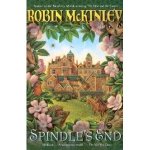My Favorite Books You’ve Never Heard Of
 The Ginger Tree by Oswald Wynd
The Ginger Tree by Oswald Wynd
This is an amazing book that I stumbled across years ago. It is written as the diary and letters of a young Scotswoman who travels to China to be married to a young military attache at the turn of the 20th century, and follows her life as she moves from China to Japan, through WWI and into WWII. Her sheltered upbringing is immediately tested during the sea voyage to China, as she sees and experiences things that are completely unlike her previous life. She continues on to marriage and motherhood, scandal and rejection by the European community. Despite all this, she finds and creates her own space as a foreign woman in a man’s world. Whenever someone asks for book recommendations, this is always at the top of my list.
 The Bean Trees by Barbara Kingsolver
The Bean Trees by Barbara Kingsolver
While Kingsolver is a well-known author, I suspect this is one of her less-known novels. It is actually the beginning of a trilogy, and the best of the three, in my opinion. While living in the southwest, a woman is handed a little girl by a Native American woman who begs her to take the child. This three-year-old girl, who acquires the nickname Bean, has already lived through unknown abuse, and the story centers around her de-facto mother, who day-by-day tries to do the right thing to meet all her needs and raise her in a loving home. The writing is so remarkable, I remember while I was reading this book, I would find myself going about my daily chores and wondering what Bean was doing while I was gone. Kingsolver re-defines herself with every novel, but her consistently excellent writing and characterization are still present in this novel.
***
 Spindle’s End by Robin McKinley
Spindle’s End by Robin McKinley
I am a fan of fantasy writing, and of fairy tales, but I don’t think you need to be either to love this retelling of the Sleeping Beauty story. McKinley has the talent to craft an entire world for her story to happen in — one where there is so much magic in the air, it settles like dust on the houses, and causes havoc on your tea if you don’t have a fairy in your family to de-scale your kettle once a week. Rosie is the princess whose future has been cursed by Pernicia, and she is being raised by two fairies (who would be called witches in a different world), completely unaware of her true identity. Despite all the gifts that were given to her at her christening — long, curly, blonde locks, lips like cherries, teeth like pearls, and skin like silk — she is not pretty; instead, she insists she is intelligent and brave. And this feisty princess turns the fairytale — and her curse — on its head by the time all is said and done, with no prince required to wake the Sleeping Beauty. I think it’s an amazing twist on the classic fairytale.
***
 Always Coming Home by Ursula K. Le Guin
Always Coming Home by Ursula K. Le Guin
While I absolutely love this book, I will admit it may not be for everyone. I tried it out on my book club several years ago, without introduction or explanation, and it fell flat for most folks. The trick to this book is to realize it is a fictional ethnography — which means, I guess, it may only appeal to the cultural anthropologists out there. The book outlines all the aspects of a future culture that is modeled on Northern California Indian tribes of the past. There are songs, stories, poems, descriptions of social organization and cultural symbolism, all defining a group of people who are living in a post-apocalyptic world where industry has been abandoned and humans have returned to small-scale tribal societies. There is a novella within the book, however, so if the rest of the writing turns you off, at least follow the parts of this story. It details the travels of a young woman from a small, non-religious society to a nearby city that is founded on a controlling, monotheistic faith. By telling a story in the future, Le Guin tells us something about the past, as well as our present.
***
 The Dork of Cork by Chet Raymo
The Dork of Cork by Chet Raymo
This book was made into a film called Frankie Starlight, but I doubt it is much better known than the book (despite starring Matt Dillon and Gabriel Byrne). The term “dork” originally referred to dwarves or little people, and this is the story of a little person named Frank Bois who grew up in the town of Cork in Ireland. Frank is an author who tells his life story, beginning with his pregnant mother’s arrival in Ireland on an American GI troopship returning from France in 1945. The twists and turns of her life and his make a great story, but when the adult Frank must come to terms with celebrity and unrequited love, magic happens. The author’s writing style is poetic and his characters are intriguing — this is definitely a favorite read.
***
 Children of God by Mary Doria Russel
Children of God by Mary Doria Russel
This is actually a sequel, but I first read it years before I read the prequel, The Sparrow, and I think it stands alone quite well. This is a science fiction novel, but it revolves around faith, religion, and cultural misunderstandings. The Jesuits have sent an exploratory party to the planet Rakhat, after Earth received transmitions of music: evidence that there is intelligent life on this planet. They found a planet with two intelligent species: the gentle vegetarian merchants, called the Runa, and the carniverous ruling class, the Jana’ata. The Jesuits become stranded and begin to create a life among the Runa, but their ideas about justice and fairness spark a civil war. The last survivor, Jesuit priest Emilio Sandoz, is held by the Jana’ata for years, but is eventually rescued and returned to Earth. This book follows Sandoz’s struggles with his lost faith, his return to Rakhat 10 years later, and the aftermath of the changes he and his fellow travellers sparked on Rakhat. While the first book tells an interesting story of faith, adventure, and overcoming obstacles, I find this the more interesting of the two novels, as it deals with the ways that the best of intentions can cause unknown consequences when two cultures come into contact for the first time.
***
 Microserfs by Douglas Coupland
Microserfs by Douglas Coupland
Coupland literally wrote the book on Generation X, but this lesser-known gem is a favorite of mine. It is the story of a group of programmers at Microsoft who decide to go it alone and create their own dot-com. Like many of his early novels, the book begins with an obsession with the material world of commodities. But don’t let the obsessive lists of what people eat, drink and own turn you off. As the group moves away from the regulated greenhouse of the Microsoft campus and into real world struggles in Silicon Valley, the characters are redeemed by the personal connections and emotional bonds they learn to create. From this vantage, it may feel like a historical novel of the early-90s, but the transformation the characters go through is timeless.
***
Hopefully, these reviews will give you some ideas about what to read as the weather starts to warm up. What recommendations would you make for books you love that aren’t well-known?

